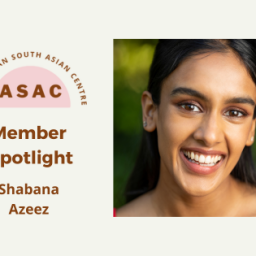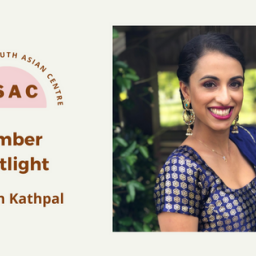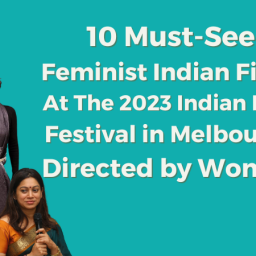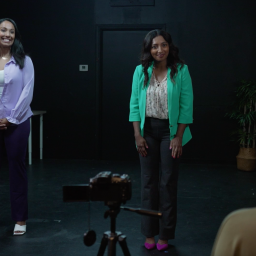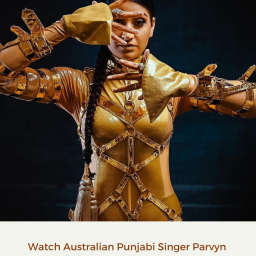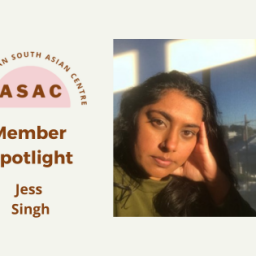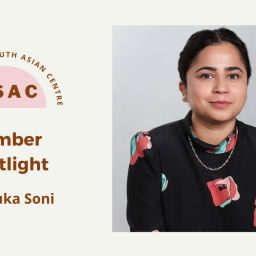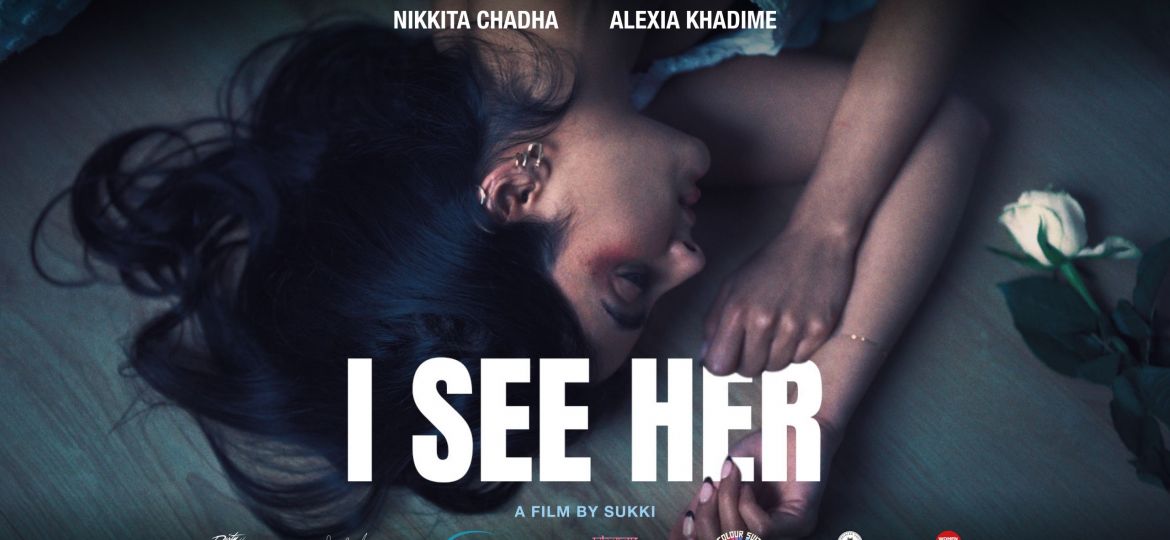
Written by Daizy Maan with Sukki Menon
‘I See Her’: A Groundbreaking Film with a Global Message to End Abuse, an interview with Director Sukki Menon.
It’s a tough subject matter, not least to be covered in a film, and yet I See Her has already moved the judges of the international film festival circuit, after being Officially Selected for BIFA and BAFTA qualifying film festival, The British Urban Film Festival, the Surrey Short Film Festival, and being featured in the UK on BBC Radio 5 Live, amongst others.
The film was written and directed by SUKKI, who is well known to the Australian South Asian Centre for being both an ambassador, and championing womens rights. It painfully, gently but truthfully highlights the power of which educating us to look out for indicators in our friends, neighbours and wider community can have to completely transform the lives of women and girls experiencing abuse or violence.
Back in 2021, Sukki used her platform to highlight the art and poetry of women at the Australian South Asian Centre and Soul House. The gesture embodied her spirit of care, generosity and love towards women, all of which are evident in this film, which will be her debut as a writer-director.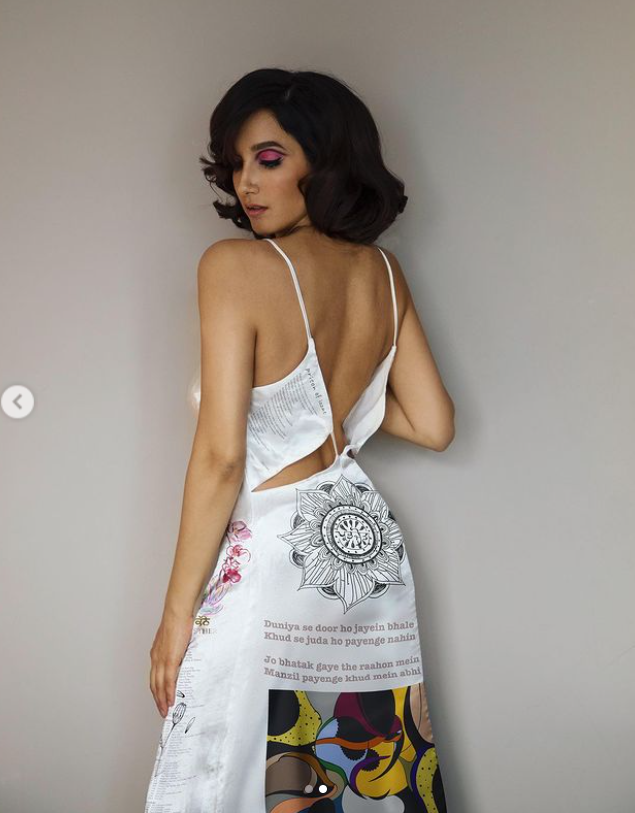
Image: Sukki wearing custom dress featuring art work from Australian South Asian women part of Australian South Asian Centre’s Soul House initiative.
The timing of I See Her is poignant, with Domestic Violence Awareness Month in America being recognized in October, and International Domestic Abuse Awareness Month in November. To highlight the film’s important message, and the impact it hopes to have in helping the lives of so many women and girls, especially those facing abuse, we spoke to SUKKI to hear more about the film, how it came about, and what she hopes its mission will be in the long-term.
ASAC: I See Her is based on the experiences of real life survivors of domestic abuse, and shows precisely how much difference we could make if we knew what signs to look out for when someone is subject to abuse or harassment. Was there a specific reason you chose this topic for your first film and how did it come about?
SUKKI: There’s a saying that goes: “write what you know.” I’ve always written as a hobby, be that on social media or in poetry as a way of sharing my thoughts and unpacking emotions, but just before we emerged from the pandemic, a couple of things happened in my life that pushed me to take the leap into turning that into a passion for writing-directing. Unlike many avid filmmakers, I didn’t have any formal training, in fact I’m perhaps best known for a completely different career entirely, however what’s always driven my quest for expressing myself through art has been my heart. That’s not to say that skills aren’t important – they’re absolutely crucial, and the learning curve into becoming a writer-director has been overwhelmingly exponential – however I think that when you have a deep, gut-wrenching passion to express yourself from a place of honesty and truth, then that’s always going to shine through via whatever medium you choose to express it with.
ASAC: Is that why I See Her is based on stories of women from the charity featured in the film’s credits?
I’ve been an ambassador of UK based charity, The Sharan Project, for many years. I’ve tried to make their mission – to provide support and advice to vulnerable women, particularly of South Asian origin, who have been or are at risk of being disowned due to abuse or persecution – at the forefront of whatever I do. Last year I received an email, a collaboration with The Sharan Project, asking me to help share the voice of a campaign called “Enough” to stop the abuse of women and girls. Being a topic of which I’d been devoted to helping for the last decade, I felt like a simple social media post would be an injustice to the cause and, as I’d been thinking about filmmaking, I suggested that I pull together my resources to find a way of supporting the message on a larger scale with a short film – I suppose in a way I hoped it might create a longer-lasting tool which might help encourage us all to push for change. That’s how the idea of I See Her was born.
ASAC: The film’s statistics seem to reflect your sensitivity, with the whole production being 67% female, 33% male, 3 female producers, an 83% female cast, with the same percentage being POC actors. Was such wide inclusivity something that you approached intentionally?
SUKKI: I think when you’re making a film about something which so greatly affects women and girls, it’s important that who you work with reflects that. So in part it was because I wanted to empower the women around me to share the message, but also because being my first foray into film (I’d only done little online shorts before this to accompany my dance career) I knew that this was a moment for me to set the precedent on how I would like to be received as a filmmaker. I’ve spent a lifetime bringing my own seat to the table, so this really has been an opportunity to create a family table, where everyone has a seat. I was also adamant that I wouldn’t make a film about abuse without including a survivor. I met Kalbir Bains, a domestic abuse survivor, author and deaf activist, through The Sharan Project, and it was her story and encouragement that really helped me through the start of the filmmaking process. When it came to casting I See Her, I knew she had to have a role in the film. I wanted her to take that moment to reclaim her power, to give her a strong voice. In fact, whilst the film has no spoken word, she’s the only one who has a line in the entire film, when she signs the word “enough,” the name of the campaign. She did a brilliant job, and I’d like to hope that her shining in this moment really helps emphasize the meaning behind the film: that by knowing what to look out for, and by being more aware as active bystanders, we have the ability to step in and change the course of the life of someone experiencing abuse.
ASAC: You mentioned briefly that a couple of things happened in your life that caused you to take the leap into filmmaking. Was there anything specific?
SUKKI: Losing my father was the biggest thing. Just over a year ago, he passed away. It was expected in that he was quite ill, but it wasn’t supposed to happen the way it did. Before I lost him, I found out that for all his resistance to my career as a burlesque artist and then on television, he’d been secretly writing the script for a TV show. I didn’t know how to go about writing a script at the time, but I read it, and knew the storyline could be brilliant. With help I pulled something together. A pilot. There was something special about it. But my father and I still had a complicated relationship, and I didn’t want to pour all of my love into his dreams when he hadn’t supported me in mine. That melted away when he was gone. I know it sounds strange perhaps, but I genuinely feel like he guided me through this film. Perhaps it’s his way of believing in me now, helping me pull together the remarkable people who have kindly volunteered their time to be involved, and help make this film possible. I feel like he’s willing it to be remarkable, from wherever he is. And even if he can’t sway the universe like that, it’s allowed me to heal and forgive.
I See Her premieres at the Genesis Cinema, London, on November 18th, and will be available to stream worldwide online from November 25th for international domestic abuse awareness month and the start of the United Nations’ #16DaysOfActivism
To support the film, the work of The Sharan Project, the #ISeeHer journey and SUKKI follow @iseeherthefilm @sukkimenon and @thesharanproject on Instagram.
South Asian Women in Film and TV | South Asian Screen Writers | Domestic Violence Women in Film | South Asian Domestic Violence | South Asian Women


